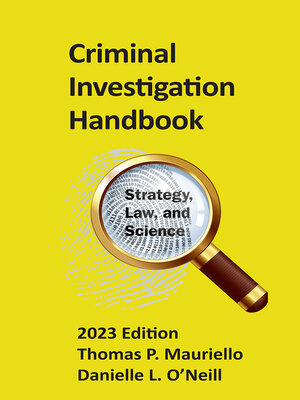
Sign up to save your library
With an OverDrive account, you can save your favorite libraries for at-a-glance information about availability. Find out more about OverDrive accounts.
Find this title in Libby, the library reading app by OverDrive.



Search for a digital library with this title
Title found at these libraries:
| Loading... |
Criminal Investigation Handbook has been written for all those responsible for conducting criminal investigations (including the police, federal special agents and investigators, governmental administration and security agencies, prosecutors, defense attorneys, etc) and those who need to understand the activities of the investigative process. These are the individuals and agencies which use these means and products of such investigations in their daily practice. It provides them with practical advice on how best to prepare cases for ultimate presentation in court and makes them aware of the most likely points at which their evidence is vulnerable and subject to attack. Also included is the listing of the new availability of crime statistics from the FBI's Crime Data Explorer (CDE) which is the digital front door for UCR data.
The Handbook answers not only the basic interrogatives of the investigation field: WHO ... WHAT ... WHERE ... WHEN ... and HOW, but, like no other treatise, Criminal Investigation Handbook also further expands and answers the most important question when a criminal investigation is started: WHY?...
This Handbook combines the in-depth analysis of a treatise with the how-to and why-to assistance of a practical guide. It aspires to be both substantive and practical. Suggestions are made herein as to the most effective way to proceed in investigating a criminal case, what evidence is the most probative not only from the perspective of satisfying the essential elements of the crime charged, but also from the point of view of convincing the judge or jury that the accused is guilty of committing, aiding or abetting, or soliciting the commission of that crime.
The Handbook focuses on:






